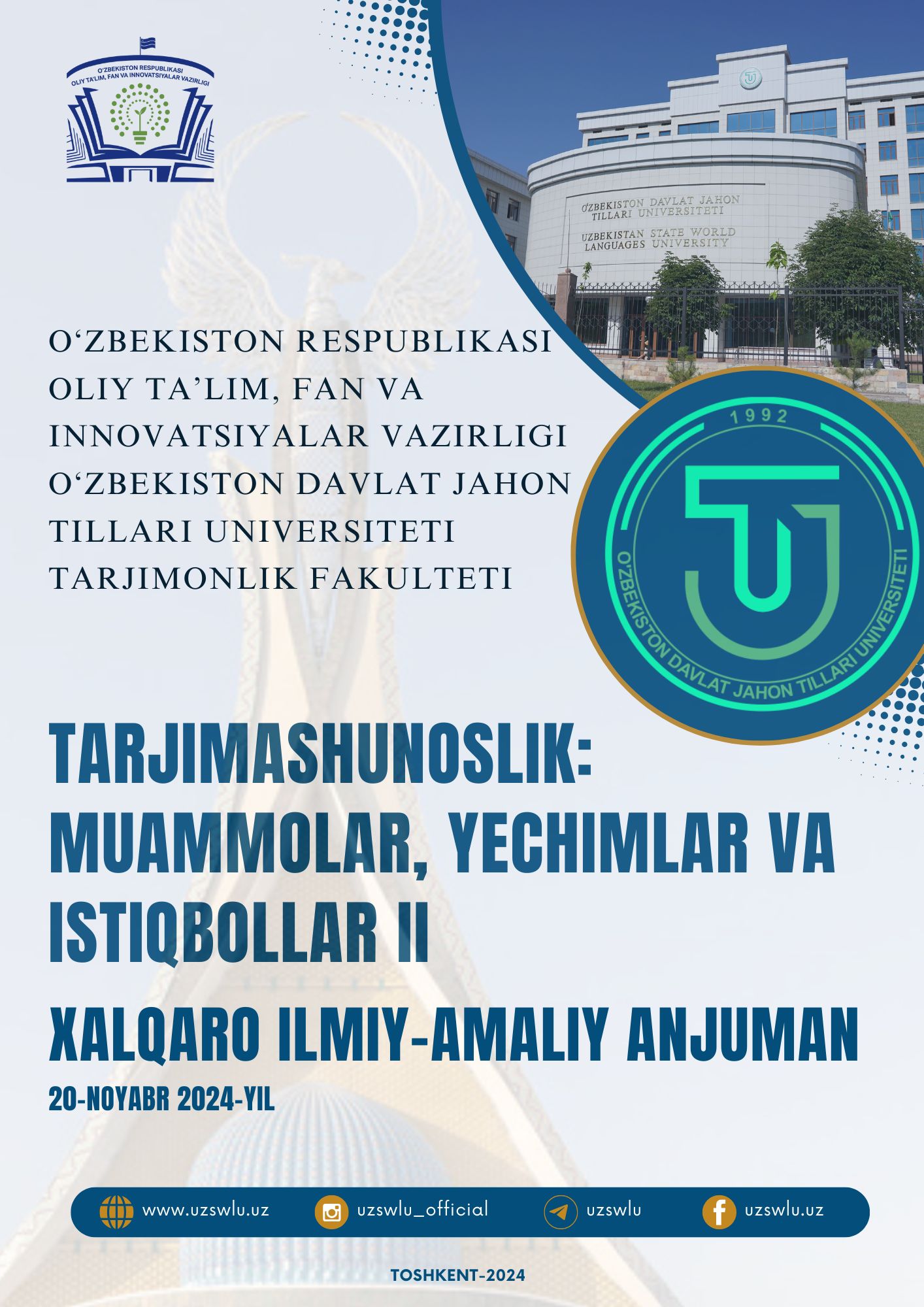THE IMPACT OF DIGITAL LEARNING TOOLS ON ENGLISH LANGUAGE PROFICIENCY IN HIGHER EDUCATION: A STUDY OF UNIVERSITY STUDENTS
Kalit so‘zlar
digital learning tools, English language proficiency, higher education, language acquisition, technology in education, vocabulary acquisitionAnnotasiya
This research investigates the impact of digital learning tools on English language proficiency among university students, focusing on vocabulary acquisition, grammar comprehension, and speaking fluency. Using a mixed-methods approach, the study collected quantitative data through surveys and qualitative insights via interviews with English language learners. Findings indicate that digital tools significantly support language acquisition, especially in vocabulary and grammar, and foster increased engagement and self-directed learning. However, challenges like over-reliance on technology and reduced interaction with peers were noted. The study offers recommendations for a balanced integration of digital and traditional teaching methods in language curricula, with implications for educators and curriculum designers.
Foydalanilgan adabiyotlar ro‘yhati
Garcia, L., & Li, T. (2019). “Technology and engagement in language education: A review of recent trends”. Language Learning & Technology, 23(2), 45-60.
Johnson, R. (2021). “Mobile-assisted language learning: Vocabulary acquisition in higher education”. Journal of Educational Technology, 18(3), 145-157.
Jones, M. (2020). “The role of digital tools in modern language education”. System, 50(1), 33-40.
Smith, K., & Anderson, P. (2021). “Interactive learning environments and English language proficiency”. Computer Assisted Language Learning, 34(1), 99-117.
Williams, S. (2020). “Balancing digital and traditional language learning methods”. TESOL Journal, 11(4), 527-535.

